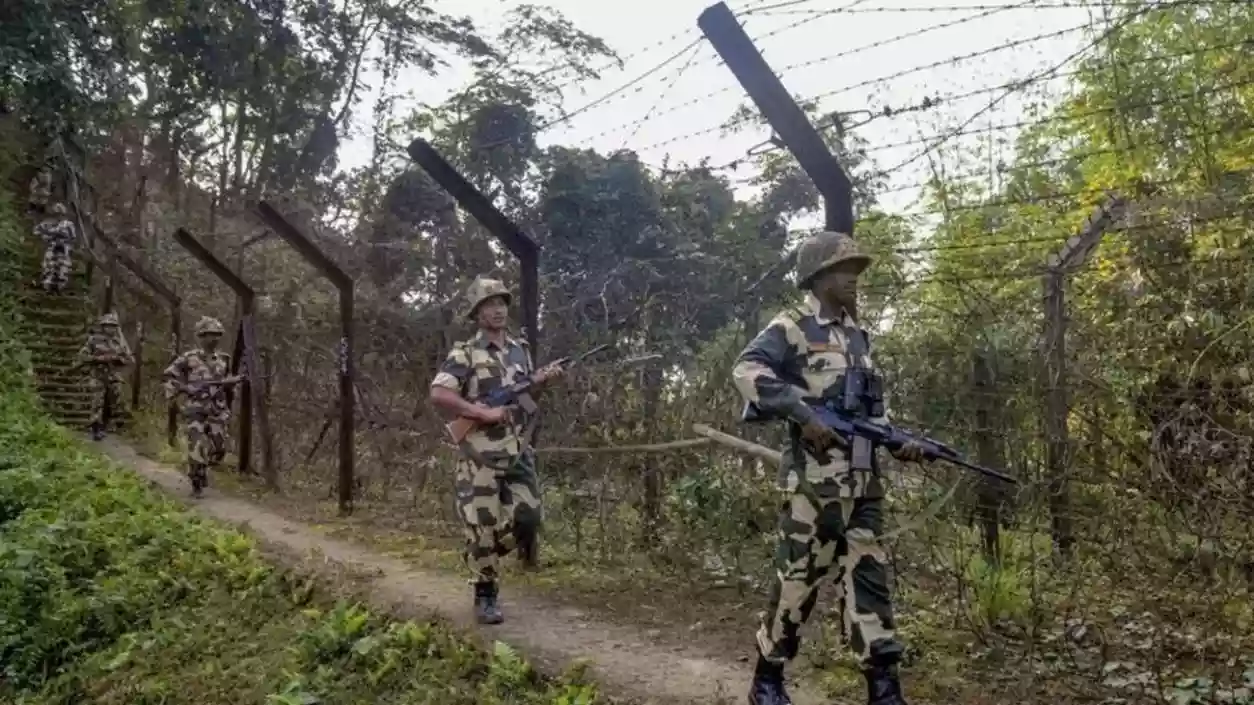.gif)
.gif)

Dense fog is significantly affecting border security operations along the India-Bangladesh border, particularly in the northern and southern regions of West Bengal. As winter conditions settle in, the fog has reduced visibility to critical levels, posing challenges for the Border Security Force (BSF) in its surveillance and monitoring efforts. Foggy conditions are making it increasingly difficult for the BSF to track and prevent criminal activities, including potential infiltration by individuals or groups seeking to cross the border illegally.
The South Bengal Frontier of the BSF, which oversees the border areas of North 24 Parganas, Nadia, Maldah, and Murshidabad, is especially affected by the dense fog. These regions are considered vulnerable due to their proximity to Bangladesh and lack of adequate fencing in many sections. The BSF has intensified its patrols and surveillance in these areas, as fog significantly impedes visibility, especially during the early mornings and late evenings. The reduced visibility hinders the BSF’s ability to effectively monitor the situation along this sensitive section of the border.
A major challenge for the BSF is the fact that large portions of the India-Bangladesh border remain unfenced. According to BSF sources, approximately 538 kilometers of the total 913.324 kilometers of the border are without barbed wire fencing, which leaves these sections particularly exposed to potential infiltration, especially during periods of reduced visibility caused by dense fog. To address this vulnerability, the BSF has deployed additional personnel to these unprotected stretches and has reinforced security measures. Surveillance technologies, including high-resolution cameras, have been installed along vulnerable areas to compensate for the visibility challenges posed by fog.
In addition to increasing surveillance, the BSF has taken steps to ensure that its personnel remain alert and avoid unauthorized actions during operations. Jawans (soldiers) have been instructed to follow strict protocols, ensuring that all actions are coordinated and approved by higher authorities. This is in response to the security challenges posed by the fog, and to ensure that the BSF maintains control over sensitive areas despite the difficult weather conditions.
The BSF's role in securing the India-Bangladesh border is crucial, as the border includes both land and water sections. Of the total 913.324 kilometers of the border, 363.930 kilometers are water border. The presence of fog and the lack of fencing in many areas increase the likelihood of border breaches, which are closely monitored by the BSF. The force is continuing its efforts to improve surveillance, enhance border patrols, and ensure that these border areas remain secure throughout the winter months. With the fog expected to persist, the BSF remains on high alert to counter any potential security threats.